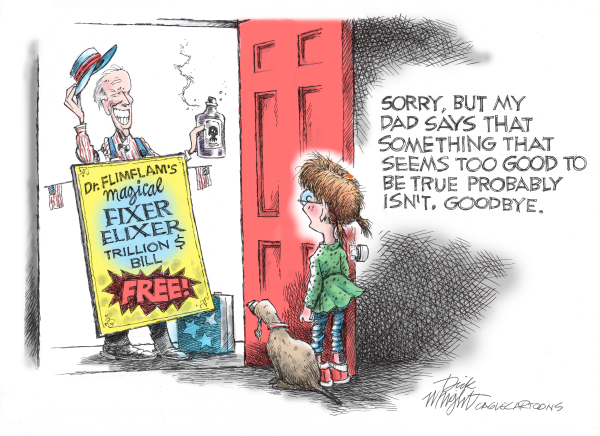White Americans can confess that when it comes to race, they're often puzzled by how the most innocent actions can be transformed by angry black writers into imagined racial hostility. On Sunday, The New York Times published a nutty little piece by Erin Aubry Kaplan asking "Is My Little Library Contributing to the Gentrification of My Black Neighborhood?"
Kaplan set up a little library on her lawn, but not for the white people! Nooooo!
Then one morning, glancing out my front window, I saw a young white couple stopped at the library. Instantly, I was flooded with emotions — astonishment, and then resentment, and then astonishment at my resentment. It all converged into a silent scream in my head of, Get off my lawn!This was meant to be a "Black space." And whiteness was ruining it.
The moment jolted me into realizing some things I’m not especially proud of. I had set out this library for all who lived here, and even for those who didn’t, in theory. I would not want to restrict anyone from looking at it or taking books, based on race or anything else. But while I had seen white newcomers to the neighborhood here and there, the truth was, I hadn’t set it out to appeal to white residents.
Now that they were in front of my house, curious about this new neighborhood attraction, I didn’t know how to feel. By bringing this modern cultural artifact here from white neighborhoods, had I set myself up, set up the neighborhood? Was I contributing to gentrification and sending the wrong message about how I wanted the neighborhood to be?To which many readers would respond: Whiskey Tango Foxtrot? Two whites glancing at a few old books was now Imperialism? It somehow represented the "casual displacement of Black people."
What I resented was not this specific couple. It was their whiteness, and my feelings of helplessness at not knowing how to maintain the integrity of a Black space that I had created. I was seeing up close how fragile that space can be, how its meaning can be changed in my mind, even by people who have no conscious intention to change it. That library was on my lawn, but for that moment it became theirs.
One wonders how she might mentally fall apart at white readers of The New York Times reading this article?
So what message do I hope they took from my library? The same message I wanted to send to the rest of my neighbors, my community: Black presence has value — in every sense of the word, and on its own terms.
That value should make the casual displacement of Black people untenable, even immoral. And that will take much more than a little library to rectify.
Here's what makes it additionally weird. As you might guess by the byline, Erin Aubry married a white guy named Alan Kaplan (who died in 2015). Karol Markowicz of the New York Post spoke for many readers:
So what message do I hope they took from my library? The same message I wanted to send to the rest of my neighbors, my community: Black presence has value — in every sense of the word, and on its own terms.
That value should make the casual displacement of Black people untenable, even immoral. And that will take much more than a little library to rectify.
Here's what makes it additionally weird. As you might guess by the byline, Erin Aubry married a white guy named Alan Kaplan (who died in 2015). Karol Markowicz of the New York Post spoke for many readers:























